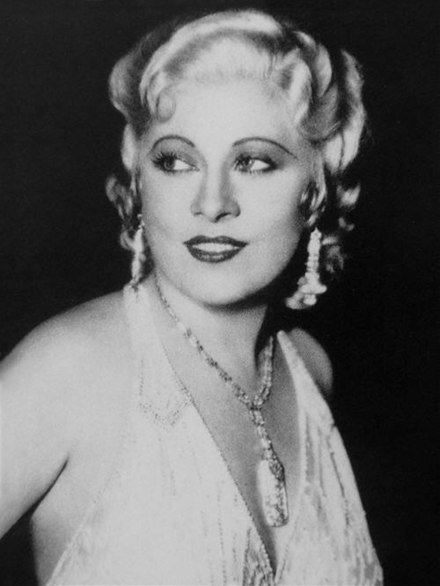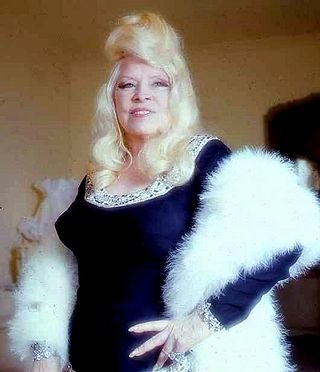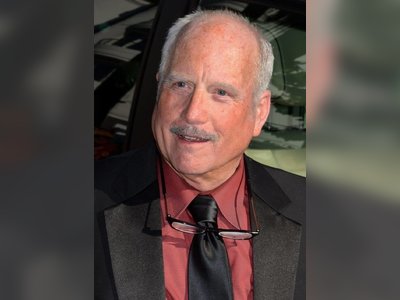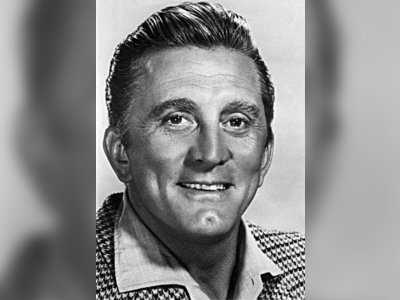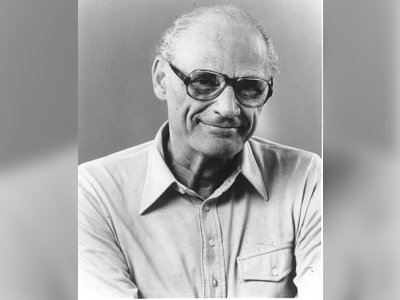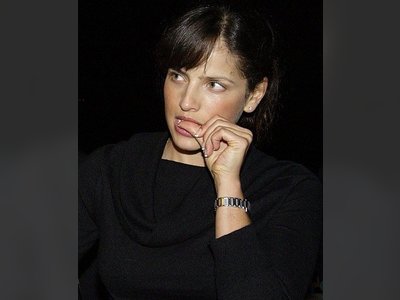Mae West: A Controversial Icon of American Entertainment
Mae West, born on August 17, 1893, and passing away on November 22, 1980, was a renowned American actress, playwright, and screenwriter of Jewish heritage. She was an enduring symbol of sexuality, known for her brash and provocative demeanor.
Early Life
Born Mary Jane West in Brooklyn, New York, she was the daughter of John Patrick West and Matilda "Tillie" Doelger (also spelled as Delker). Her father was a well-known prizefighter who later worked as a "special police officer" and eventually became a private investigator with his own agency.
Her mother was a Jewish corset and fashion model who emigrated from Bavaria to the United States, though the family was Protestant. West's paternal grandmother, however, was of Irish Catholic descent, and she had other Roman Catholic relatives, but this did not deter her from her career choices.
According to some sources, Mae West's paternal grandmother was of African-American descent, with her father, John Edwin, having been an African American who assimilated into white society.
Her sister was Mildred Katherine West (December 8, 1898 – March 12, 1982), known as Beverly, and her brother was John Edwin West (February 11, 1900 – October 12, 1964).
During her childhood, West's family moved to various neighborhoods within New York City, including Woodhaven, Queens, Williamsburg, and Greenpoint in Brooklyn.
Mae West made her first appearance on stage at the age of five in a church event and continued to participate in amateur performances throughout her youth. She often won local talent competitions, showcasing her early talent.
Early Career
She began her professional career in vaudeville with the Hal Clarendon Stock Company in 1907 at the age of fourteen. Initially, she performed under the stage name "Baby Mae" and portrayed various characters, including a woman impersonating a man, a "coon shouter" in blackface, and Sis Hopkins. Her commercial symbol was said to be influenced by female impersonators Bert Savoy and Julian Eltinge, who were famous during the Pansy Craze era.
West made her first appearance in a legitimate Broadway production in 1911 in the show "A La Broadway," choreographed by her former dance instructor Ned Wayburn. The show closed after just eight performances. Subsequently, she appeared in a show called "Vera Violetta," which featured another up-and-coming performer, Al Jolson.
In 1912, she also appeared in the opening act of "A Winsome Widow" as a seductive woman named Peaches.
Her image appeared in the 1918 edition of a popular music magazine, along with the caption "Ev'rybody Shimmies Now." At this point, her mother encouraged her to pursue acting, and according to West, her mother always thought everything she did was fantastic.
In 1918, after several performances in well-known theaters, West finally broke through with the Shubert Brothers' production of "Sometime," alongside Ed Wynn. Her character, Mayme, performed the shimmy dance. Ultimately, the production ran into trouble with the city's vice squad, and West and the cast were arrested.
She was charged with moral corruption and, on April 19, 1927, was convicted of "corrupting the morals of youth." During her time on Welfare Island (now known as Roosevelt Island), she famously entertained the prison warden and his wife at their dining table and told reporters that she wore silk underwear during her incarceration.
West spent ten days in the detention center and was released two days before completing her sentence for good behavior. The media coverage of the incident contributed to her career. Her next play, "The Drag," dealt with homosexuality and was one of what West called her "comedies with a message." After a series of attempts in Connecticut and New Jersey, West announced she would stage the play in New York.
However, "The Drag" was never presented on Broadway, as the Society for the Prevention of Vice vowed to ban it if West attempted to stage it. West was an early supporter of women's liberation but declared herself non-feminist. She also supported gay rights.
West continued to write plays, including "The Wicked Age," "Pleasure Man," and "The Constant Sinner." Her productions often courted controversy and faced other challenges, but the controversies ensured that West remained in the headlines, and most of the time, this was reflected in packed houses.
"Diamond Lil," a 1928 play about a full-figured woman in the last decade of the 19th century, became a hit on Broadway. This show enjoyed lasting popularity, and West revived it numerous times throughout her career.
In 1932, Paramount Pictures offered her a contract in the film industry. At the age of 38, which was considered quite late for a screen debut, especially for a sex symbol (although she kept her age secret for several more years), West made her screen debut in "Night After Night," alongside George Raft.
Initially unhappy with her small role in the film, she negotiated the right to write her own lines. In her first scene, she played a hat-check girl who exclaims, "Goodness, what lovely diamonds," to which a reply was, "Goodness had nothing to do with it, dearie." Upon seeing the final result of the scenes she had written, Raft remarked, "She stole everything but the cameras."
She starred in the film "She Done Him Wrong" (1933) in a leading role alongside Cary Grant.
Marriage and Personal Life
Mae West married Frank Szatkus, whose stage name was Frank Wallace, on April 11, 1911, in Milwaukee, Wisconsin. They were fellow vaudeville performers who first met in 1909 when she was 17 and he was 21. West kept their marriage secret. However, in 1935, after West had made a number of successful films, Szatkus discovered her marriage certificate and reported it to the press.
A sworn statement later exposed that West had indeed been married to Wallace since her time in jail for "Sex" in 1927 but had not previously revealed this information. She married him for the second time in July 1937, in response to legal inquiries.
Legacy in Popular Culture
During World War II, American servicemen often referred to their life vests as "Mae Wests." This was partly due to the phonetic similarity between "breasts" and "life vests" and partly due to the vest's curvaceous shape.
The term "Mae West" also refers to a round inflatable lifebelt that is no longer in use.
Mae West left an indelible mark on American entertainment with her provocative persona and fearless approach to her career. Despite the controversies she faced, she remains an enduring icon of her era.
- מיי וסטhe.wikipedia.org
